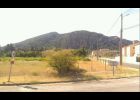Perspectivação e temporalidades (cosmo)técnicas (imaginativas): o livro-roteiro Angenommen como a culminação da escritura flusseriana / Perspectivation and (Cosmo)technical (Imaginative) Temporalities ...
This paper analyzes key passages of Vilém Flusser’s Angenommen from the point of view of the functioning of his writing. Starting out from the Flusserian theory of techno-imagination, the notion of anthropophagy (Oswald de Andrade), the concept of techno-diversity proposed by Yuk Hui and the Nietzschean doctrine of the eternal return the article proposes that the Angenommen constitutes a fundamental contribution to the problem of the destiny of philosophy. The text fits into a tradition of texts that proposes an intimate relationship between the eternal return, ghostliness, revolution, technique, and possibilities/potentialities. From Leibniz, to Benjamin, as well as Nietzsche and Blanqui, the idea of a possible world focused on the significance of temporality in Modernity. Angenommen institutes a circularity, a potential eternal return in the singular events that go beyond the circularity of past and future history based on the fictional hesitation of (un)probable possibilities. The apparent quasi-dialectical movement of the book proves to be a hellish circle from which there is no way out. The paradox at the heart of the work is that the freedom of imagination of (un)probable heterochronotopic scenarios is constrained by the instinctual repetition of anti-entropic principles. The (im)probably (im)possible phantasmagories replicate, as philosofictions, reality as a trauma.
A positividade da negação: o exílio de Flusser no Brasil
This text contextualizes Vilém Flusser’s exile in Brazil during the turbulent period of the civil-military uprising of the 1960s, both historiographically and philosophically. It focuses upon the Flusserian network and the discussions of his intellectual constellation. Flusser’s philosophical thoughts are examined through earlier writings including the books History of the Devil and Phenomenology of the Brazilian, in addition to essays published in newspapers, and to his personal correspondence. Interdiscoursive relations are further examined in reference to the writings of Ernesto Grassi and Ernst Jünger. Although Grassi and Jünger arrived in Brazil under different circumstances, they nevertheless introduced concepts that were somehow compatible with Flusser’s narrative of Brazilian history. Special attention is drawn to Flusser’s notion of “progress” and “history” in relation to the Cold War period.
Flusser in Robion
Robion, a small town in the Provence of southeastern France, was the second exile of Vilém Flusser and his wife. They lived there from the early 70s until his death in the early 90s, and after living for a long period in the city of São Paulo. This new but well known cultural landscape attracted a lot of philosophers, writers and artist and represented for Flusser a so called anti-Brazil, some kind of paradise in a strait opposition to the “desert” landscapes of Brazil. Here he found a prosperous landscape where several points of his thinking where connected in natural and cultural ways.
Horizontes da filosofia do exílio: as Américas de Horkheimer e de Flusser
This article is a comparative study between Flusser’s and Horkheimer’s philosophy of exile. Their biographies are similar: they both suffered from persecution in their countries due to the anti-semitism of the Nazi regime, and saved themselves by immigration, first to another European country and later on to the Americas. But the similarities stop here. In the United States Horkheimer recovered intellectual freedom, but the American reality only confirmed the European mind set he had left behind: the empire of instrumental reason and the pervading presence of barbarism. Flusser, on the other hand, discovered a completely new world in the Brazilian territory: different not only from a geographic point of view but from a human perspective as well.
Flusser an die Schule! Die Essays im Ethikunterricht
Does it make any sense to teach Vilém Flusser’s essays in the advanced courses of a secondary school? While all over Europe school subjects have increasingly been restricted by a formal frame, some precautions have to be taken in the interest of Flusser’s method and message. As a pioneer in the newly established subject of Ethics in the federal state of Hessen/Germany, the author tested the essays without a strict curriculum for more than six years. He gives an overview of general conditions at the school and offers a vivid personal record of his experiences. He then deals with Flusser’s phenomenological style and intellectual challenges for students and teachers alike. As this essay has a practical purpose, too, he shows the crucial points of relating Flusser’s way of thinking. Such training is worth the effort in the political context of 2011, when citizens all over the world are trying to regain some influence on political and economic structures. In the second part, the author presents a dozen of short essays and examines their interrelation, as they share the same subject. They center on Flusser’s well-known conviction that the exilee should consider himself part of an avant-garde. Some useful hints to a sequel or an alternative approach are provided. Excerpts from four student texts have also been included.
On Creativity: Blue Dogs with Red Spots
Anke Finger’s short article addresses Flusser’s understanding and use of “creativity” and “art-making” and presents his writing for the US art journal artforum: 20 columns, published between 1986 and 1991. This excerpt is taken from the last chapter in the forthcoming, co-authored English-language introduction to Flusser, published by the University of Minnesota Press.
The Brazilian Exile of Vilém Flusser and Stefan Zweig
In this article, I outline the history of Jewish exile to Brazil during the 1930s and 1940s, and I compare Vilém Flusser’s philosophy of immigration and Stefan Zweig’s last work of fiction, Schachnovelle. Flusser and Zweig shared a similar dialectical form of thinking, and yet Zweig’s novella expressed the failure of finding a synthesis due to exile while Flusser found the synthesis in the experience of immigration itself. Flusser’s philosophy of immigration is not clearly applicable to those who are not in his same situation, since he places awareness, disengagement, and transcendence at a key position. His emphasis may not be applicable to all refugees, transnational immigrants, and border crossers; however, Zweig was one of those in a similar situation as Flusser. Like many of Zweig’s novellas, the framework of Schachnovelle is constructed around a number of opposites and their possible reconciliations and yet these various attempts to bring together the opposites all fail. Flusser’s philosophy is a positive one that has incredibly strong features, yet its limitations show up in an analysis of Zweig’s work and point to the need for further work in the philosophy of immigration.
2. Devil may care: Flusser’s Journey Into Exile and Beyond Reason
Vilém Flusser’s second book, A história do diabo (“History of the devil”), was published in Brazil in 1965 but has yet to be translated into more widely current languages. The present paper aims to summarize the major arguments contained in that early work, situating them in the cultural and intellectual context of the time. Taking Flusser’s personal history of exile as its point of departure, the paper suggests that the issues raised by the book are prescient of important changes in Western thinking over the past thirty years – in particular, the paradigm shift from the rational certainties of modernity to a more fluid notion of ‘reality’ in post-modernity. Flusser’s pioneering grasp of material appearances as “structures of virtuality”, elaborated through language, is indeed prophetic of things taken for granted in the digital era. For the student of Flusser, this important early work provides an insight into the profound unity underlying the multiple facets of his thought and writings.



